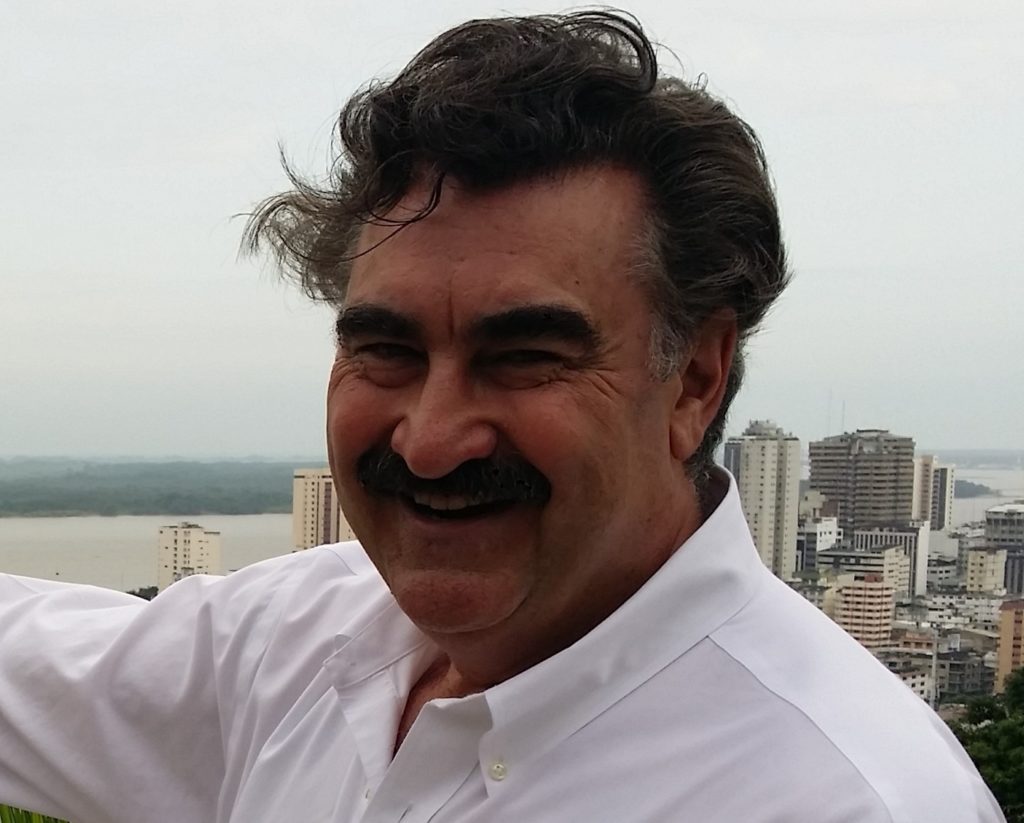
When Paul Willie hit a roadblock during a significant writing project, he did what many professional writers do.
The Niagara College Hospitality Professor grabbed coffee with a friend to be his sounding board.
It was Chef-Professor Mark Picone and the conversation proved to be a good one. Not only could Willie move forward with his work, he found a writing partner in Picone.
Together, the two helped a team of writers to pen A Guide to Hospitality and Tourism Law in Canada, which will be used as a textbook, including in risk management classes at NC, and as a reference by industry professionals.
“We’re hoping this will be a valuable resource for our industry colleagues,” Willie said. “It’s fresh, it’s current, it’s relevant. It’s the text that will be in use at Niagara College at the diploma, degree and post-graduate level.”

Paul Willie, Hospitality Professor.
Recently published by Emond, A Guide to Hospitality and Tourism Law in Canada explains the statutory and regulatory requirements of running restaurants, bars, hotels and adventure tourism operations in 2021. It also considers the effects of the COVID-19 pandemic on the industry.
This isn’t the first book Willie has written. The veteran of the hotel industry has three titles to his name, in addition to numerous journal articles. For this project, Willie was the lead writer on sections about the accommodation sector, including the legal relationship between an innkeeper and guest.
But it is the first time Picone, who helped establish and develop wine country cuisine in Niagara, has had his name on the cover of a book as co-author.
As someone who has helmed kitchens and owns and operates a culinary studio and vineyard, he tackled issues including human resources — everything from hiring to training employees to building a healthy workplace culture — and business operations.
“It was like going back to school again,” Picone said. “I had to research. I had to write. I had to edit. It was really quite rewarding and fulfilling.”
Chef-Professor Mark Picone
The idea to write what Picone calls “a tome of sorts” that’s relatable for both students and operators came after another conversation Willie had with the book’s publisher in 2019 about updating the only other existing text on the topic.
It was sorely outdated, having been written nearly 15 years ago. Co-authors Peter Wilson, a law instructor at Ryerson University, and Jonathan Heshka, who teaches law and adventure studies at Thompson Rivers University in Kamloops, BC, had been using it in their own classes. But they often had to provide supplements to update the material.
Knowing the commitment required to write a book, Willie deliberated on the decision to be part of the writing project. Then he set to work.
“If you make a commitment, you make a commitment and you don’t back out,” he said. “Even when you don’t want to write, you have to sit down and force yourself to write.”
The decision was easier for Picone, whose culinary studio was temporarily shuttered by the pandemic when he joined the writing team. He had the time and he was passionate about the topics he covered.
“Coming up, I would say human resources is the greatest area of concern, especially in light of COVID,” Picone said.
“It is really special to research, record and share my level of expertise to contribute to a textbook,” he added. “It was a great journey, to say the least.”


